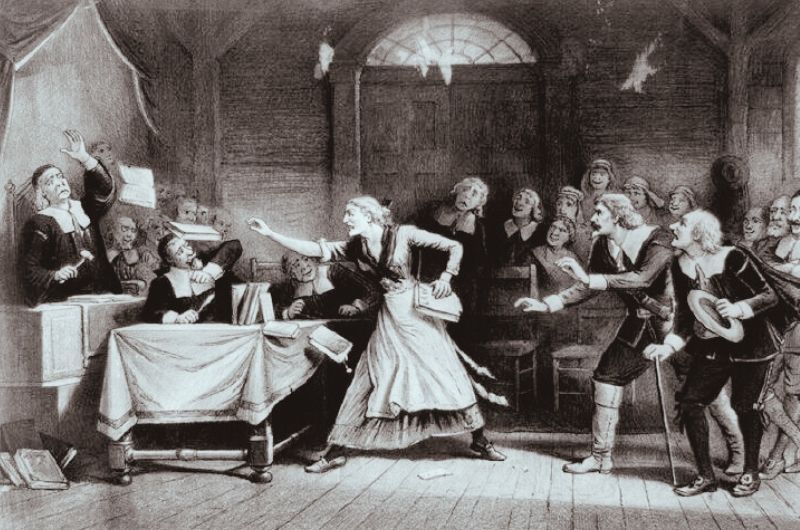
Betty Parris – at the Center of the Salem Witch Trials
The Story of Betty Parris
Betty Parris, actually Elizabeth Parris, is known as the first girl affected by the events of the Salem Witch Trials in 1692. She was born on November 28, 1682, in Boston. In 1689, she moved to Salem with her family and her slave Tituba, as her father, Samuel Parris, was appointed minister of Salem Village.
Betty Parris and the Beginning of the Witch Hunt
In the winter of 1691-1692, Betty Parris and other girls experimented with divination techniques like the "Venus glass." They tried to learn more about their future husbands and social status by interpreting shapes and symbols that formed from egg whites in water.
The Role of Tituba
Some sources suggest that the slave Tituba taught the girls these divination techniques. However, there is no evidence in the court records to support this claim.
Fear and Superstition
In his book "A Modest Inquiry Into the Nature of Witchcraft," local minister Reverend John Hale writes that the girls became frightened when they saw the shape of a coffin in the glass during a divination session. People in Salem were convinced that the girls were bewitched. Modern theories, however, suggest that the strange behavior of the girls may have been caused by boredom, abuse, epilepsy, mental illness, or even a disease caused by the consumption of moldy rye.
Betty Parris' Life After the Witch Trials
To keep Betty away from the witch trials and to help her, her parents sent her from Salem Village (now Danvers) to live with her cousin Stephen Sewall in the town of Salem. In 1710, Betty married a shoemaker named Benjamin Baron, with whom she had four children. She died on March 21, 1760, at her home in Sudbury, Massachusetts.
Betty Parris appears as a minor character in Arthur Miller's 1953 play "The Crucible." In the play, Betty accuses her cousin Abigail Williams of practicing witchcraft and drinking blood to kill John Proctor's wife, Elizabeth. However, this is a fictional portrayal and has no connection to reality.
Regret and Apologies
Although many of those involved in the witch trials quickly expressed regret and apologized, Betty Parris never did. Ann Putnam Jr. was the only affected girl who ever apologized for her actions during the Salem Witch Trials

